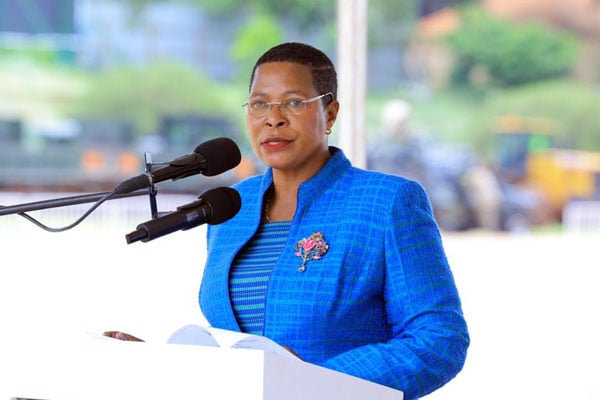Prime
Who’s holding the kiboko this time, Mr President?

Author: Phillip Matogo. PHOTO/FILE
What you need to know:
- Kwame Nkrumah called neocolonialism the last stage of imperialism.
In the heady days of fundamental change, when Ugandans were blissfully unaware of their political realities, President Museveni said the following words:
“The mission of colonialism was to make us work for foreigners and that is why coffee was called Kiboko because the British used to beat the Africans to grow coffee.”
Today, Ugandans are feeling the lash of their times anew, and coffee is once again involved.
Many of us have raised our voices (and eyebrows) in objection to the new coffee processing agreement upon which government and an ‘investor’ called Enrica Pinetti have scrawled the dotted line.
Many of us Ugandans accuse government of slaloming procedure in order to inartfully dodge doing the right things, as well as doing things right.
The agreement that was signed on February 10, between government and Uganda Vinci Coffee Company Limited, gives the latter exclusive rights to buy all Uganda’s coffee without being enjoined to pay any form of tax until 2032!
Budadiri West MP Nandala Mafabi, the chairperson of Bugisu Cooperative Union which was started by coffee farmers in 1954, says government did not involve the Solicitor General in drafting the agreement.
As if that was not enough, Agricultural minister Frank Tumwebaze was being more than frank, excuse the pun, when he revealed last week that he too was not consulted about the agreement.
Opposition leader Kizza Besigye, not one to spare the rod when it comes to dealing with a spoilt system of rule, declared: “The capture of coffee is part and parcel of a broader capture of the economy.”
Charles Peter Mayiga, the prime minister of Buganda, looked up the word Ebyaffe in the English language, only to find Buganda on the wrong side of this agreement, and this government.
Former Vison Group chief executive officer Robert Kabushenga, who is now a farmer, said: “We, coffee farmers, have been betrayed and sold out. This was never about us adding value. The coffee sector has been mortgaged to foreigners. The compradors no longer hide.”
ALSO READ: 'Fathers' of African independence
The operative word in all this is “compradors”, which simply means agents of foreign interests.
The kiboko has been brandished again as Ugandans will once again be forced to grow coffee for foreign interests. This time, however, these interests are not specifically British as Ugandans will be rendering unto interests not easily identifiable in a police lineup.
However, when all the dust settles, this coffee scandal will not germinate into a coffee-gate because Ugandans lost control over their economy so long ago that if we are only just realising it now, then maybe it did not belong to us to begin with.
When the British left Uganda, they left behind a collaborating class to ensure we went from colonialism to neocolonialism.
The fact that we are still under the thumbs of our colonial master must tell you that their proxies, our leaders, are doing a wonderful job in keeping them in control.
Kwame Nkrumah called neocolonialism the last stage of imperialism. This is the stage where power is exercised through economic or monetary means. The neocolonial State may be obliged to take the manufactured products of the imperialist power to the exclusion of competing products from elsewhere.
Nkrumah said it was possible that neocolonial control can be exercised by a conspiracy of colonial interests which are not specifically identifiable with any particular State.
Indeed, these neocolonialists aren’t readily discernible. To paraphrase George Orwell, Ugandans looked from neocolonialist to Ugandan, and from Ugandan to neocolonialist, and from neocolonialist to Ugandan again; but already it was impossible to say which was which.
Mr Matogo is a professional copywriter
[email protected]


